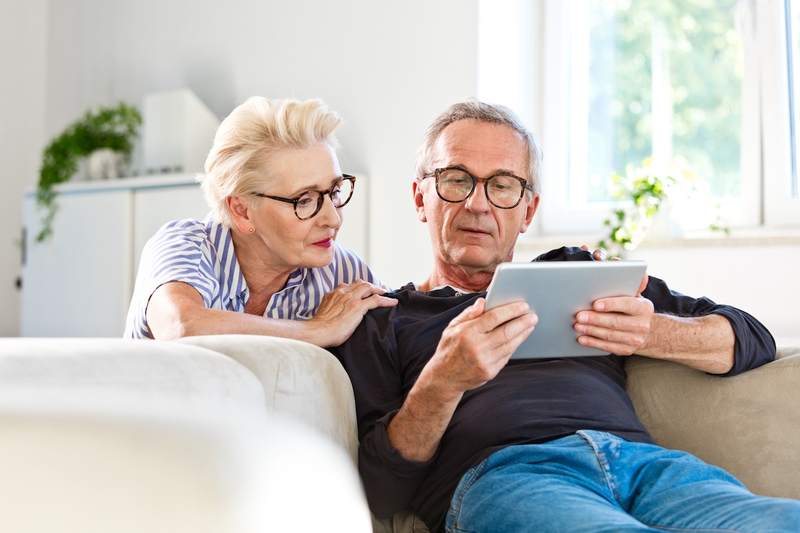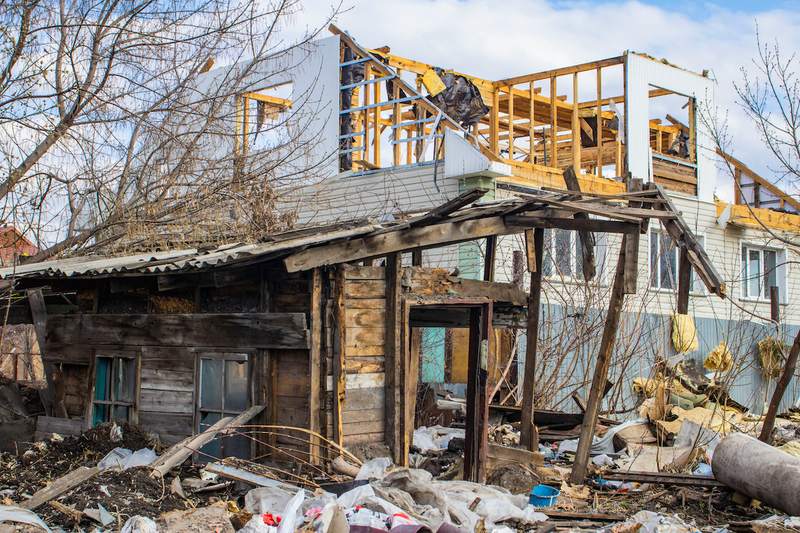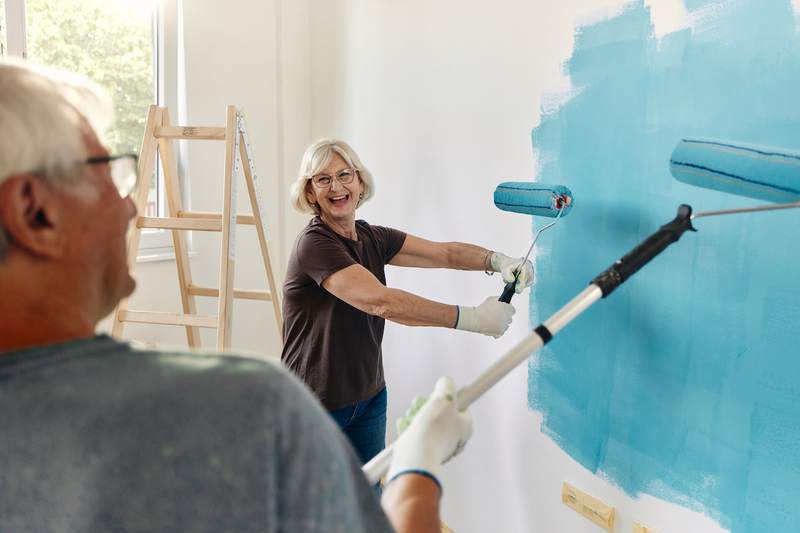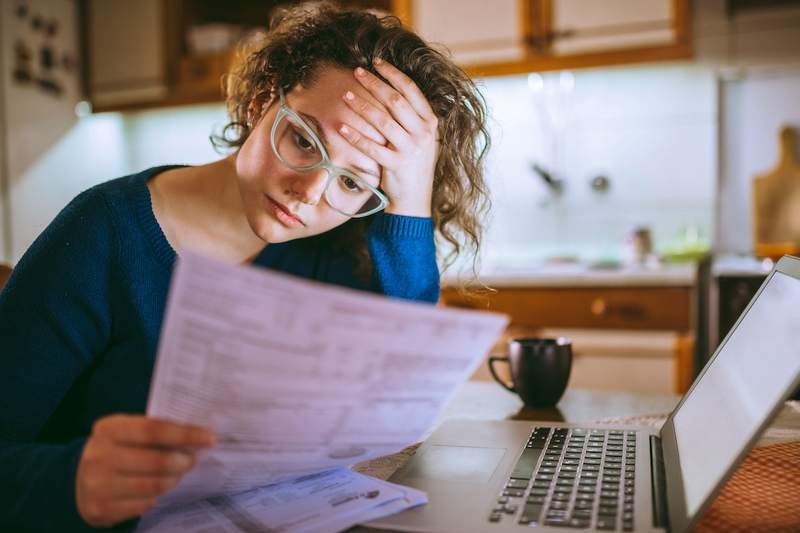A reverse mortgage allows qualified older homeowners to convert their equity into a loan, which they can then use to pay major expenses or supplement their income to continue living in the home in their later years.
Because a reverse mortgage is a loan, borrowers must document their finances during the application process. But there also are rules that the property must meet to get a reverse mortgage. You may be asking, can you get a reverse mortgage on a mobile home? Or can you get a reverse mortgage on a condo?
Here’s what you need to know about which homes are eligible for a reverse mortgage:
- What Is a Reverse Mortgage?
- Homes Eligible for a Reverse Mortgage
- Homes Ineligible for a Reverse Mortgage
- The Bottom Line on Home Eligibility for a Reverse Mortgage
What Is a Reverse Mortgage?
A reverse mortgage is a home loan available to homeowners age 62 and older. Like a traditional mortgage, you borrow money using your home as collateral while the title remains in your name. However, instead of making monthly mortgage payments that reduce your loan balance and increase your equity, you receive money while increasing your loan balance and reducing your equity.
Interest and certain fees are added to the loan balance each month, and the loan must be repaid once the borrower no longer lives in the home.
A home equity conversion mortgage is the most common type of reverse mortgage. With an HECM, the home used as collateral must be your principal residence, which means it’s where you spend the majority of the year. You also remain responsible for paying property taxes and homeowners insurance as well as maintaining the home, though it’s possible to set up what’s called a life expectancy set-aside, or LESA, to pay some of those fees.
Some borrowers mistakenly think of a reverse mortgage as free money when it’s a loan that ultimately needs to be repaid. This usually is done by selling the home, with the proceeds used to repay the reverse mortgage balance. Any remainder then goes to the seller or their family.
The downside is that a reverse mortgage reduces the homeowner’s equity, which means there’s less left for the seller, their estate, or their heirs.
Homes Eligible for a Reverse Mortgage
Reverse mortgages are only available for homes that meet reverse mortgage property requirements. This is because the Federal Housing Administration backs and insures HECMs, so these reverse mortgages must follow FHA rules for borrowers and their properties.
Here’s a look at which properties are eligible for a reverse mortgage.
Single-family homes
If you own a home that stands alone with land around it, or has a divider wall that completely separates it from the adjacent property, then it will most likely be eligible for a reverse mortgage.
“A single-family house is the most typical form of property that qualifies for a reverse mortgage,” says Corey Tyner, a real estate investor and founder of Buy Yo Dirt, a land investment company in Phoenix. “Your single-family home may be eligible as long as you live there as your primary residence.”
Multifamily homes with up to 4 units
Multifamily homes include duplexes, triplexes, and quadruplexes. Any home that contains up to four separate living units is eligible for a reverse mortgage, as long as the borrower lives in one of the units as their primary residence.
FHA-approved condominiums
Can you get a reverse mortgage on a condo? It depends on the building. While not all condominiums are eligible for a reverse mortgage, those approved by the FHA are eligible.
You can go to the Department of Housing and Urban Development to search for FHA-approved condo properties.
HUD-approved manufactured homes
Certain manufactured homes are eligible for a reverse mortgage as long as they are approved by the FHA and HUD.
Government guidelines stipulate that the home must:
- Not be larger than 400 square feet.
- Have been built after June 15, 1976.
- Be built and stay at a permanent location.
- Not have been installed or occupied at a previous site.
Farms producing no income
Properties that sit on agricultural farmland also may be eligible for a reverse mortgage, depending on the acreage.
If the property is producing income from that land, then it will be ineligible for a reverse mortgage.
If it isn’t producing income, then the reverse mortgage amount will be calculated based on the value of the entire farm property, rather than just the house portion.
Homes Ineligible for a Reverse Mortgage
So, what type of home is not eligible for a reverse mortgage? Here’s what you need to know about homes that don’t meet the requirements.
Vacation homes and other second homes
Because reverse mortgages are specifically intended to help older homeowners afford to live in their primary residences, second homes and vacation properties are ineligible.
“Potential borrowers often wonder if it is possible for them to manage a reverse mortgage on vacation homes,” says David Tully, a licensed real estate agent at eXp Realty in Reno, Nevada. “Unfortunately, it is not. Reverse mortgages have been designed to help the senior homeowners who want to age in their principal residence. This is why vacation homes and second homes do not qualify.”
Multifamily homes with more than 4 units
A multifamily home with more than four units is technically designated as a commercial property. Only residential buildings are eligible for a reverse mortgage.
Homes in co-op properties
Some condos are part of cooperatives — commonly called co-ops — where the building is jointly owned by a corporation made up of the building’s inhabitants. Buying into a co-op means you’re buying shares of that nonprofit corporation. A board of directors manage the co-op and set the rules for the building.
Because the loan for a co-op is secured by shares instead of property, the co-op structure does not meet FHA guidelines for reverse mortgages.
Mobile homes
You may be wondering, can you get a reverse mortgage on a mobile home? The answer is no. To be eligible for a reverse mortgage, the home needs to be permanently attached to land.
While some types of manufactured homes are eligible for a reverse mortgage, mobile homes are not.
Commercial properties
You cannot get a reverse mortgage on commercial property.
The Bottom Line on Home Eligibility for a Reverse Mortgage
If you’re considering taking out a reverse mortgage, you’ll need to know whether you and your property are eligible. Both have to meet the requirements of a reverse mortgage for you to get the loan. Knowing whether your property is eligible is an important step toward deciding if a reverse mortgage is right for you.






